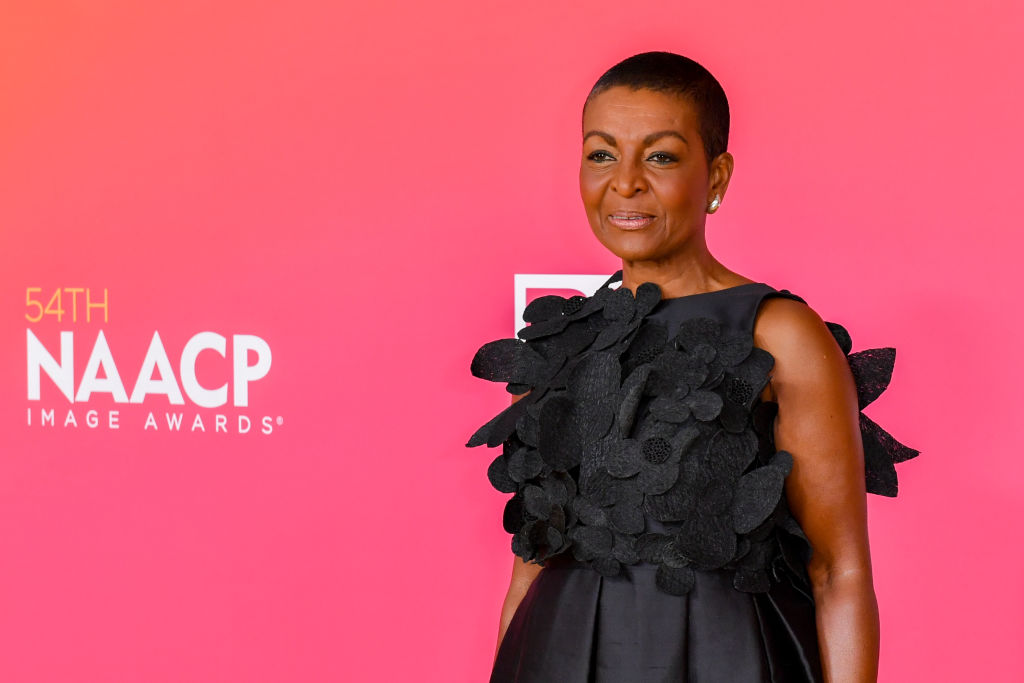Here’s an interesting exercise. Next time you read a diatribe about white people, in your mind change the word ‘white’ to ‘black’. You’ll be horrified by the results, I guarantee it.
All those op-eds in the liberal media attacking ‘white women’ for ‘weaponising’ their tears are transformed into flagrantly racist screeds. So a Guardian headline from 2018 would become: ‘How black women use strategic tears to silence other women.’ Imagine if a newspaper actually published something like that?
Are sweeping racial generalisations okay when talking about white people? Why?
Robin DiAngelo’s life work would become the interrogation of ‘black fragility’. ‘All black people have absorbed hateful ideology’, the alternative-universe Ms DiAngelo might say. We would balk at that, right?
Where top TV execs currently damn old TV shows like Monty Python as ‘too white’, in this world they might attack the 1990s sitcom Desmond’s for being ‘too black’. Jon Snow’s Brexit sneer of 2019 would become: ‘I have never seen so many black people in one place, it’s extraordinary.’
‘There’s nothing more frightening in America today than an angry black man’, a CNN headline would say. BBC podcasters would tell ‘black women’ to ‘educate themselves’ and stop being so selfish. As for the identitarian left – they’d forever be posting blogs titled ‘Dear Black People’, wherein they’d instruct unenlightened non-whites on how to be better, nicer citizens.
Worst of all, we’d see the phrase ‘terribly black’. In this linguistic switcheroo, actress Adjoa Andoh’s discomfort with the ‘terribly white balcony’ at Buckingham Palace following the King’s coronation would become angst over the ‘terribly black’ make-up of some other family.
Imagine it. Imagine if an image of a fine, upstanding, elite black family – the Obamas, say – was publicly described as ‘terribly black’. We would hate that, wouldn’t we?
The vast majority of people would feel incredibly uncomfortable, if not outraged, with public chatter on the selfishness of black women, the scourge of black fragility, or the dangers posed by angry black men.
So how has it become entirely normal to see such commentary in relation to white people? Are sweeping racial generalisations okay when talking about white people? Why?
Adjoa Andoh’s comment on the whiteness of the Windsors has caused a storm. It was during ITV’s live commentary on the coronation that the Bridgerton actress observed that the ‘rich diversity’ of the audience in Westminster Abbey had been replaced by a ‘terribly white balcony’. ‘I’m very struck by that’, she said.
My first thought was: why are you struck by that? The Windsors are a white family. My family’s white, too (however much Roddy Doyle might claim that the Irish are the ‘blacks of Europe’). Are we also ‘terribly white’ or just, you know, white?
Of course, the royal family is not a normal family. It’s powerful and only its members are permitted to become head of state. I think that’s wrong. The hereditary principle has no place in the 21st century.
And yet even bearing this in mind, the issue of royal discrimination is not as black and white, if you’ll excuse the turn of phrase, as people would have us believe. The truth is that Ms Andoh, as an Anglican, is more likely to get a spot on that balcony than someone like me, a lowly Catholic.
Yes, the royal rules were changed a few years ago, finally permitting royals to marry Roman Catholics without losing their place in the line of succession. But a ‘Roman’, as we’re sometimes pejoratively called, is still forbidden, by law, from becoming monarch.
Ms Andoh’s remark has become the most complained about TV moment of 2023 so far. More than 4,000 people have complained to Ofcom. Personally, I’m not the complaining type. I have never understood the urge to write an angry letter after seeing something on the box you didn’t like. Isn’t feeling offended a normal part of life in a busy, diverse, free society?
And yet, we absolutely must not write off the complainants as ‘gammon’ or ‘Karens’, as some snooty observers are. For these concerned viewers are doing something entirely understandable – they’re bristling against the racialisation of everyday life.
The stealthy return of racial thinking and racial judgement has been horrifying to watch. Under the banner of identity politics, in the disguise of ‘diversity’, the racial imagination has been reanimated.
Forget Martin Luther King’s progressive cry that we should judge people by their character, not their skin colour. Now, everywhere from university campuses to workplaces are obsessed with tackling ‘unconscious bias’. We are goaded, constantly, to see race. To beat ourselves up about our own race, if we’re white, or to imagine we are the perma-victims of a cruel world, if we’re black.
The end result is a tense society, a fraying of the relaxed social relations of recent decades. The great gains of the post-race era, of the MLK revolution, are being undone by a poisonous new racialism that comes camouflaged as progressive thought.
No, we don’t have to witch-hunt Ms Andoh. Call off that nonsense. She said what she was thinking, and that’s her right. But let’s talk about the rehabilitation of the racial ideology. Let’s talk about how ‘white’ became a byword for ‘bad’. A healthy society does not obsess over race as much as ours does.







Comments